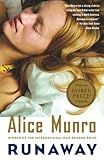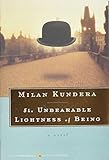I was 26 and planning for a wedding when Colin Powell made his speech at the United Nations about the supposedly incontrovertible need to invade Iraq. The most famous pitch for war in our time. I can’t be certain, but I believe this historical moment was what led me soon after to visit Shakespeare & Co and purchase a paperback of War and Peace, that infamously long, infamously antiwar Russian novel. Now seems as good a time as any, I said to anyone who’d listen.
Two months later, Baghdad fell; and a month after that President Bush declared “Mission Accomplished” from the deck of an aircraft carrier that had returned from the Persian Gulf. Meanwhile, I was still planning for my wedding, and now I was also carrying War and Peace to and from the office daily.
“It’s amazing,” I said to a co-worker who asked how the book was. “But it’s taking longer than an actual war to read.”
Even then, the joke was more callous than funny; and it became less and less funny as the occupation of Iraq wore on, and weeks led to months, then years of violence, bloodshed and turmoil. According to the reading log that I keep, the actual number of books I read over the course of the eight year conflict in Iraq is 319, including War and Peace. This feels somehow both better and worse.

 As the years pass, my recollection of the books I’ve read becomes, shall we say, more and more imperfect. I cannot tell you anything about John Fante’s Ask the Dust except that I read it in March 2009 and thought it was great. I remember the warm feeling I had for Alice Munro’s Runaway while reading it in 2006, but can I tell you the plot of any story in it? A character’s name? A single scene? No, no, and no. I’m stunned to learn that I have ever read Haruki Murakami’s After the Quake. I made a note in my reading log that I thought it was excellent, the highest rating in the system that I use. Excellent? I’m sure it was. Just not excellent enough to remember.
As the years pass, my recollection of the books I’ve read becomes, shall we say, more and more imperfect. I cannot tell you anything about John Fante’s Ask the Dust except that I read it in March 2009 and thought it was great. I remember the warm feeling I had for Alice Munro’s Runaway while reading it in 2006, but can I tell you the plot of any story in it? A character’s name? A single scene? No, no, and no. I’m stunned to learn that I have ever read Haruki Murakami’s After the Quake. I made a note in my reading log that I thought it was excellent, the highest rating in the system that I use. Excellent? I’m sure it was. Just not excellent enough to remember.
But I remember War and Peace. Maybe because I spent so long, well, reading War and Peace. I carried the still-like-new 1,386-page book daily to the subway station at 23rd Street, where I caught the downtown 6. One snowy morning, I was hustling to catch a train and slipped on ice near the subway entrance. I stayed vertical but the book tumbled down the steps; picking it up, I found an appalling tear in the cover. After the spill, I was angry with myself for weeks.
 Sometime that spring, I recall sleepily reading a chapter about a grand oak tree while snug in bed at my future in-laws’ home. Later, also while at their house in Pennsylvania, I read a chapter about a romantic sled ride by a pair of young lovers. But the names of those lovers escapes me. Unless, maybe, was it, Kitty? And Levin? After scouring the steamer trunk of my memory, I searched online for answers. Turns out, I’m half right. Tolstoy created a Kitty and a Levin – but he put them in Anna Karenina. There is only one character from War and Peace whose name I recall with certainty: Prince Andrey, a majestic presence whom I liked from the start, even though I also felt like I should not like him. That’s the secret witchery of Tolstoy: he conjures sympathies for any and every kind of person.
Sometime that spring, I recall sleepily reading a chapter about a grand oak tree while snug in bed at my future in-laws’ home. Later, also while at their house in Pennsylvania, I read a chapter about a romantic sled ride by a pair of young lovers. But the names of those lovers escapes me. Unless, maybe, was it, Kitty? And Levin? After scouring the steamer trunk of my memory, I searched online for answers. Turns out, I’m half right. Tolstoy created a Kitty and a Levin – but he put them in Anna Karenina. There is only one character from War and Peace whose name I recall with certainty: Prince Andrey, a majestic presence whom I liked from the start, even though I also felt like I should not like him. That’s the secret witchery of Tolstoy: he conjures sympathies for any and every kind of person.
Of the plot, I can tell you there is a war. Napoleon appears. Lives are made and ruined. And that’s all I remember. Yet, I know that I loved the book. I still think of it as a book that moved me, that taught me so much about what is possible in building a novel. The details have been worn away, but the impression remains. Reading War and Peace was a personal event, one of those watershed experiences that I enjoyed both for what it was and for how it was the fulfillment of something I had long wanted to do: a notch on the bedpost of my personal reading adventures.


 For all my adult life I have tried to read far and wide, or at least far and wide for me. Certainly the complete arc of my reading list would underwhelm true doyennes of world literature. But I have done my best to wander the planet in search of understanding, perspective, and experiences that extend beyond the Midwestern town where I began. This pursuit has led me to Gabriel Garcia Marquez’s fanciful Macondo and Nabokov’s spectral Zembla; from the South Seas of Robert Louis Stevenson to the Harlem of James Baldwin; from Australia (The Transit of Venus),to Argentina (Labyrinths) and beyond (The Left Hand of Darkness).
For all my adult life I have tried to read far and wide, or at least far and wide for me. Certainly the complete arc of my reading list would underwhelm true doyennes of world literature. But I have done my best to wander the planet in search of understanding, perspective, and experiences that extend beyond the Midwestern town where I began. This pursuit has led me to Gabriel Garcia Marquez’s fanciful Macondo and Nabokov’s spectral Zembla; from the South Seas of Robert Louis Stevenson to the Harlem of James Baldwin; from Australia (The Transit of Venus),to Argentina (Labyrinths) and beyond (The Left Hand of Darkness).
This reading journey made me the person I am. Gave me perspective. Helped me to understand the narrative of my own life. And now at midlife I am beginning to see how the record of this intellectual travel fades. Does the inevitable forgetfulness make the work done less valuable in the long run? Do I need a certain level of constant recall to validate that it was all time well spent? I know the answer is no. But it’s still disturbing to see that even with books that I think I remember very well, what I can recall unaided is being steadily reduced to mere impressions or a few sharp vignettes, like the cherished memory of a beloved summer in childhood, a time when you know you were happy but it’s increasingly hard to explain precisely why.
In June of the first year of the Iraq War, I finished reading War and Peace while lying on the sofa in the den of the apartment where my future wife and I were living. Our first home together. She was asleep down the hall. She was still my fiancée, still a promise of a life to be, and not yet the mother of our two children. So much was unwritten, unknown, a future that I know now but couldn’t know, couldn’t fathom then. I remember the last chapter was a long slog through dull philosophizing, but I was determined to finish, and after 1 a.m, I did. The living room windows were open because the night was warm and taxi cabs and late night revelers were still making noise outside on Lexington Avenue. I wanted to tell someone I was done, but there was no one to tell. I rubbed my eyes and thought, My God, where do you go after that? Not just as a writer, but as a reader?

 I could reread War and Peace, but I couldn’t get back to that moment at the end, no matter how much I tried. As an adult I haven’t reread many books. On the rare occasion when I do, it is with the craftsman’s curiosity to see how a particular book worked. I paged through Never Let Me Go a couple years ago to clock how Ishiguro handles his gradual reveals. Last year, I reread much of The Unbearable Lightness of Being because I was convinced it had hidden parallels to a Sheila Heiti novel. Will I ever read all of War and Peace again? Unlikely. But I was also once pretty convinced the Iraq War was necessary, and also that the war was more or less over shortly after it began. Certainties change with time; maybe I will begin to reread more.
I could reread War and Peace, but I couldn’t get back to that moment at the end, no matter how much I tried. As an adult I haven’t reread many books. On the rare occasion when I do, it is with the craftsman’s curiosity to see how a particular book worked. I paged through Never Let Me Go a couple years ago to clock how Ishiguro handles his gradual reveals. Last year, I reread much of The Unbearable Lightness of Being because I was convinced it had hidden parallels to a Sheila Heiti novel. Will I ever read all of War and Peace again? Unlikely. But I was also once pretty convinced the Iraq War was necessary, and also that the war was more or less over shortly after it began. Certainties change with time; maybe I will begin to reread more.
Recently, I went looking for the copy of War and Peace I carried around for months. I’ve moved four times since I read it, and it has had a place on a bookshelf in each apartment. Taking it off the shelf, I looked for the rip on the cover, the mark after I dropped it on the stairs long ago. But there was no rip on the cover of this book. How could this be? Turning over the book in my hands, I was confused until I found a jagged hangnail on the spine. Then I remembered: yes, this is the damage from that fall. My memory was correct in spirit, but the details I had stored up in my heart were troublingly wrong. A minor failure of recall. But still, a stumble. Another one. Flipping through the pages, I stopped at page 613 and read:
“The prince had greatly aged during the war. He had begun to show unmistakable signs of failing powers, sudden attacks of drowsiness, and forgetfulness of events nearest in time, and exact memory of remote incidents, and a childlike vanity in playing the part of leader of the Moscow opposition.”
Everything I love about Tolstoy is right there: the crumbling grandeur of a proud man, the insistent life force in the long strands of clauses that keep reaching, and the prose’s uncanny ability to capture the particular and the universal all at once. Indeed, this is how it is, as you age; you hold fast to what you know, sometimes so much so that the relentless newness of the world strikes and slides off you.
 Wars go on and on, without fail. As the invidious Judge Holden says in Blood Meridian: “It makes no difference what men think of war. War endures.” Meanwhile, the individual mind and the reading journey last only so long, mere decades at best, sometimes far less.
Wars go on and on, without fail. As the invidious Judge Holden says in Blood Meridian: “It makes no difference what men think of war. War endures.” Meanwhile, the individual mind and the reading journey last only so long, mere decades at best, sometimes far less.
Bonus Links:
—The Pleasures and Perils of Rereading
—Oil Plumes and White Noise: On Rereading DeLillo
—Collision Courses and Castration Anxiety: Rereading John Irving
—Kafka on the Go: Rereading ‘The Metamorphosis’
—Mistaking Solipsism for Intimacy: On Rereading Jamaica Kincaid’s ‘Girl’
The post The Case for ‘War and Peace’ and Rereading appeared first on The Millions.









